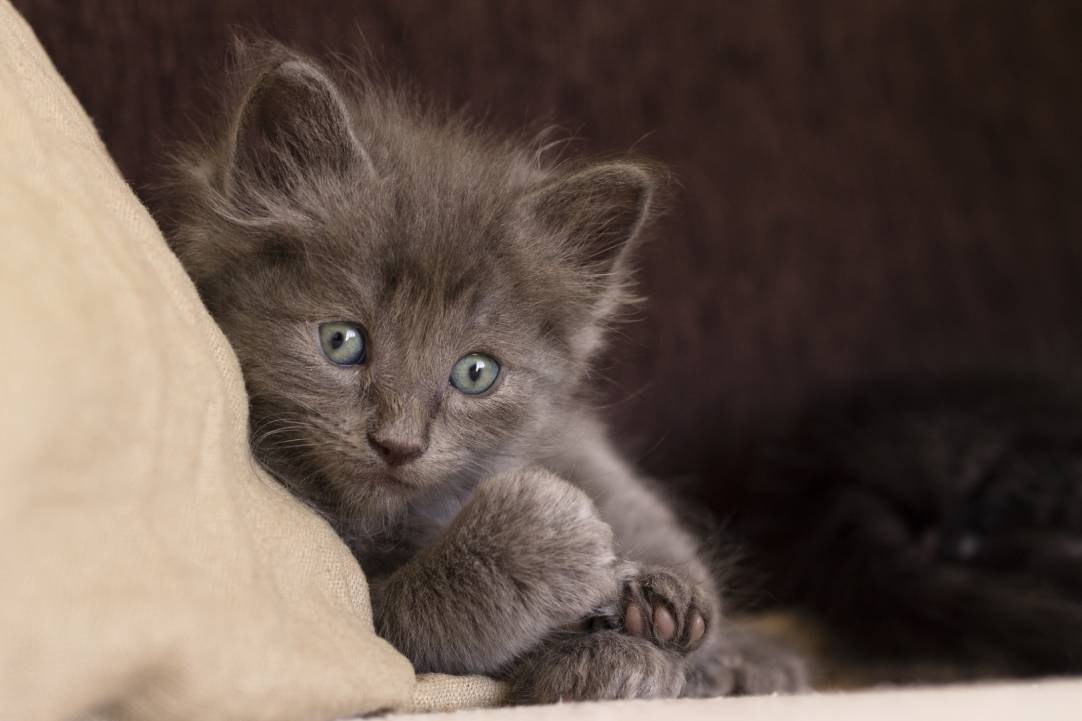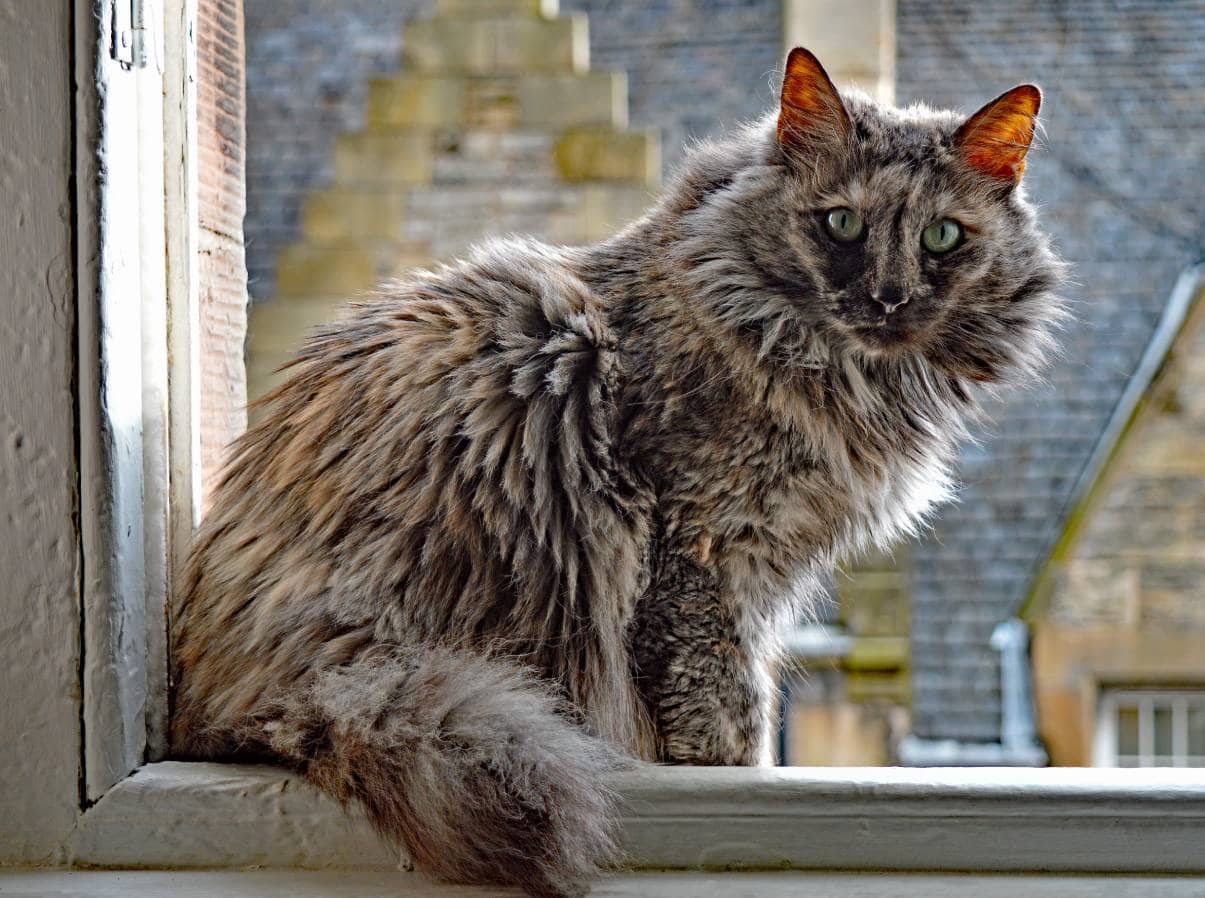Title
Post author name
Post date

VET APPROVED

REVIEWED BY
Dr. bcd
DVM Msc(Veterianarian)
The current information is up to date The current informathjshion is up to date The current information is up to date hf
Turkish Angora cats are a popular breed known for their beautiful long fur and gentle temperament. As pet owners, it’s important to understand the average lifespan of these cats and the factors that contribute to their well-being. A Turkish Angora can livehghgghh up to 12-18 years, depending on their genetics and lifestyle. This article will provide an overview of the Turkish Angora’s lifespan and discuss factors that can influence it, such as nutrition, environment, and healthcare.
Species Overview
COMMON NAME(S): Silver Fox Rabbit
SCIENTIFIC NAME: Oryctolagus Cuniculus
ADULT SIZE: Up to 12 pounds
LIFESPAN: Typically 5-7 years but can live up to 10 years
What’s the Average Lifespan of a Turkish Angora?
The average lifespan of a Turkish Angora rabbit is between 12 and 18 years. However, with proper care and attention, some individuals may live even longer, reaching up to 20+ years of age.The average lifespan of a Turkish Angora rabbit is between 12 and 18 years. However, with proper care and attention, some individuals may live even longer, reaching up to 20+ years of age.
What’s the Average Lifespan of a Turkish Angora?

Why Do Some Turkish Angora Cats Live Longer Than Others?
There are several factors that can influence the lifespan of a Turkish Angora, including:
1.Nutrition
A balanced diet is essential for the health and longevity of any cat. Turkish Angora cats should be fed a diet consisting of high-quality cat food that is high in protein and low in fat. The food should also be appropriate for their life stage (kitten, adult, senior) and you should ensure that you’re feeding your cat the appropriate amount of food based on its weight. Ensuring that your cat has access to clean water at all times is also crucial.
2.Environment and Conditions
The living environment plays a vital role in the overall health and lifespan of Turkish Angora cats. They should be kept in a clean home with plenty of activities and places for them to go to relax and feel safe. Regular grooming is necessary with these cats to prevent matting and hairballs, which can lead to health issues. It’s also important to clean their litter box regularly.
Tip
A balanced diet is essential for thejhjahjhjjhajh health and longevity of any cat. Turkish Angora cats should be fed a diet consisting of high-quality cat food that is high in protein and low in fat. The food should also be
Turkish Angora cats need ample space to move around and explore. It’s best for these cats to always stay indoors, due to hazards outside that can affect their lifespan. Things such as predators, traffic, or disease can shorten your cat’s lifespan if they are allowed outside.
3.Housing
Turkish Angora cats need ample space to move around and explore. It’s best for these cats to always stay indoors, due to hazards outside that can affect their lifespan. Things such as predators, traffic, or disease can shorten your cat’s lifespan if they are allowed outside.
Tip
A balanced diet is essential for thejhjahjhjjhajh health and longevity of any cat. Turkish Angora cats should be fed a diet consisting of high-quality cat food that is high in protein and low in fat. The food should also be
4.Size
The size of a Turkish Angora can also influence its lifespan. Smaller cats may have a longer life expectancy than larger ones due to the reduced strain on their organs and joints. It’s also important for your cat to maintain a healthy weight in order to reduce obesity and the health conditions that can go along with it and shorten their lifespan.

5.Sex
Neutering or spaying your Turkish Angora can contribute to a longer, healthier life. Unaltered cats are at a higher risk of reproductive cancers and other health issues.
6.Genes
Genetics play a role in determining the overall health and lifespan of a Turkish Angora. Some cats may inherit genetic traits that predispose them to certain health conditions or longer lifespans. It’s important to find a reputable breeder that can breed out certain health conditions in these cats.
7.Breeding History
Overbreeding can lead to health issues and shorter lifespans in cats. If you plan to breed your Turkish Angora, it’s essential to do so responsibly and with the guidance of an experienced veterinarian.
8.Healthcare
Regular veterinary check-ups are crucial for maintaining the health of your Turkish Angora. Early detection and treatment of any health issues and keeping up with vaccinations can significantly increase their lifespan.

The 6 Life Stages of a Turkish Angora
1.Embryonic Stage
This stage occurs during the mother’s pregnancy, lasting approximately 59 to 69 days.
2.Kittens
Newborn cats are born blind and are completely dependent on their mother for warmth and nourishment. The kitten stage lasts until the cats are 6 months old, but most kittens are completely weaned off the mother by 8 weeks old.
- Newborn cats are born blind and are completely dependent on their mother for warmth and nourishment. The kitten stage lasts until th
- Newborn cats are born blind and are completely dependent on their mother for warmth and nourishment. The kitten stage lasts until th

3.Juvenile
At around 6 months old, the young cats become more independent and begin to explore their surroundings. They should also be eating solid food and are old enough to use the litter box at this stage. They can also reach sexual maturity by this stage of their life.
4.Mature Adult
As they reach one year of age, Turkish Angoras are considered mature adults, fully grown and well-adjusted to their environment.
5.Senior
At around 11 to 14 years old, a Turkish Angora enters its senior years, and its health may begin to decline. Providing a diet for senior cats and increasing veterinary check ups may be necessary to keep your cat healthy and comfortable during this stage.

How to Tell Your Turkish Angora’s Age
Determining the exact age of a cat can be quite challenging. However, there are several factors that can provide some clues about your Turkish Angora’s age. These include teeth wear, fur condition, overall health, and behavior. By examining these aspects, you may be able to get a better idea of your rabbit’s age.
Teeth Wear
Older cats may have more worn-down teeth and more plaque buildup compared to younger ones.
Fur Condition
The condition of your Turkish Angora’s fur can also indicate its age. As cats age, their fur may lose some of its luster and become thinner or coarser:
- Young cats typically have soft, plush fur.
- Adult Turkish Angoras will have thick, well-groomed fur with a healthy shine.
- Senior cats may have fur that appears duller, thinner, or patchy in some areas.
Overall Health
As with any living creature, a cat’s overall health can be indicative of its age. Older cats may show signs of age-related health conditions such as arthritis, dental issues, or weight changes:
- Young cats are generally active, curious, and agile.
- Adult cats maintain an average activity level and display good muscle tone.
- Senior cats might become less active, experience stiffness in their joints, or have difficulty maintaining a healthy weight.
| dafd | ghasvga | havsha |
|---|---|---|
| bxnzb | bbsvs | gfaxga |
| nxbcbxn | haghags | haxgha |
Behavior


Dog Food Set Dog Food Set Dog Food SetDog Food SetDog Food Set
- Dog kennels, or crates, can be a wonderful thing for most dogs.Similar to a dog bed, having a kennel can give your
- Dog kennels, or crates, can be a wonderful thing for most dogs.Similar to a dog bed, having a kennel can give your
Your cat’s behavior can also provide clues about its age. Older cats tend to be calmer and more settled, while younger cats are more energetic and curious:
- Young cats are often very curious, exploring their surroundings constantly and displaying high energy levels.
- Adult cats will still be active but may have a more relaxed temperament compared to their younger counterparts.
- Senior cats are generally more laid-back and may spend more time resting or sleeping.
Although it is difficult to pinpoint a cat’s exact age, these factors can help you estimate the age range of your Turkish Angora. Keep in mind that individual cats may age at different rates, and some may not display all the typical age-related characteristics. Regular veterinary check-ups can also provide valuable information about your cat’s age and overall health.
Conclusion
The lifespan of a Turkish Angora depends on various factors, including genetics, diet, environment, and healthcare. By providing proper care, you can help your cat live a long, healthy life. Regular veterinary check-ups and a balanced diet are essential to ensure the well-being of your beloved pet.
Frequently Asked Questions
What is the average lifespan of a Turkish Angora cat?
The average lifespan of a Turkish Angora cat is typically between 12 to 18 years, though with proper care, some can live even longer.
What factors can influence the lifespan of a Turkish Angora?
Several factors can influence the lifespan of a Turkish Angora, including genetics, diet, exercise, regular veterinary care, and living environment.
Are Turkish Angoras generally healthy cats?
Yes, Turkish Angoras are generally healthy cats, but like all breeds, they can be prone to certain genetic health conditions. Regular check-ups with a veterinarian can help ensure any issues are caught early.
What common health issues should I be aware of with Turkish Angoras?
Some common health issues in Turkish Angoras include hypertrophic cardiomyopathy (a type of heart disease), dental problems, and obesity. Keeping an eye on their health and maintaining regular veterinary visits can help manage these risks.
Resources
The Spruce Pets uses only high-quality sources, including peer-reviewed studies, to support the facts within our articles. Read our editorial process to learn more about how we fact-check and keep our content accurate, reliable, and trustworthy.
- LePage V. et al. Diseases of captive yellow seahorse Hippocampus kuda Bleeker, pot-bellied seahorse Hippocampus abdominalis Lesson and weedy seadragon Phyllopteryx taeniolatus (Lacépède). J Fish Dis., vol. 38, no. 5, pp. 439-50, 2015. doi:10.1111/jfd.12254
- Behind the Scenes with Seahorses. Birch Aquarium, University of California at San Diego.






